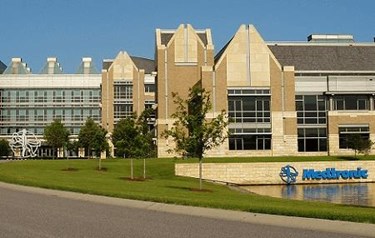Medtronic Signs Its First Integrated Health Solutions Agreement In U.S.

Medtronic has inked an Integrated Health Solutions agreement with University Hospitals Cleveland Medical Center (UH), the first agreement of its kind signed by Medtronic in the U.S. Together, the organizations will implement Medtronic’s operational models to streamline workflow and efficiency in select catherization (cath) and electrophysiology (EP) laboratories.
Medtronic’s Integrated Health Solutions division — which offers managed services for cath/EP labs and operating rooms — is a response to rapid changes in the global healthcare system and “risk shifting from payers to providers,” according to the company website. Optimizing efficiency is one way for providers to control their cost without sacrificing quality of patient care.
Over the past few years, several of the largest medtechs — including J&J, St. Jude Medical, GE, and Philips — have launched risk-sharing agreements with healthcare systems, which allow companies to prove the value of their products and build long-term relationships with providers, while sharing some of the risk.
London Business consulting firm Frost & Sullivan recently recognized Medtronic’s leadership in the managed services market, particularly its work in cath and EP labs globally. Medtronic currently has over 90 long-term contracts in place across Europe, the Middle East, Africa, and Canada. The agreement with UH will be the first integrated health solutions deal signed by Medtronic in the U.S.
“Our integrated Health Solutions business was formed as part of a commitment to advance healthcare delivery in more cost-effective ways,” said Mike Genau, senior VP and president of Americas Region for Medtronic, in a press release. “Our goal in collaborating with UH is to enhance patient care and system efficiency through the unique combination of operational insights, data, medical technology, and services.”
UH Hospitals’ network of 18 hospitals, 40 outpatient centers, and 200 physicians’ offices in northern Ohio serves the needs of over one million patients per year. Jeffrey Peters, COO for UH, told the Star Tribune that as many as ten Medtronic employees would be working at UH in a nonclinical capacity, and that he expects to see improvements in labor management, scheduling, and patient throughput.
“Our collaboration with Medtronic gives us a unique opportunity to learn from their international best practices in inventory management and scheduling optimization,” said Peters. “We are excited to embed their expertise into our clinical operations, allowing our clinical staff to focus on providing the highest level of cardiovascular care for our patients.”
In Medtronic’s most recent earnings call, CEO Omar Ishrak reported a “temporary” slowdown in revenue that he expects to rebound in the near future. Ishrak noted that the company’s service and solutions businesses are “long-term efforts” that will sustain growth in the long run.
“While we’re still early in the journey to value-based health care, we remain focused on fully understanding and leading the shift to health care systems that reward value and patient outcomes over volume,” said Ishrak, adding that medical technology — when used appropriately — can improve efficiency and outcomes, driving new forms of value creation.
